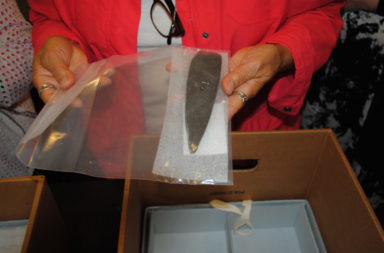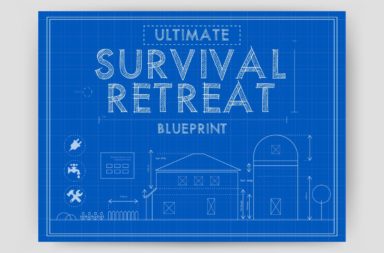Gunsmithing is a skill all preppers should learn, for several extremely important reasons…both now and during a SHTF scenario. Becoming a gunsmith might just bit a lot less complicated, time-consuming, and expensive than you think.
While the rules relating professional gunsmithing vary by state, most do not require any government-issued licensure or certification testing. In fact, a number of reputable and nominally priced gunsmith training classes are available online and at brick-and-mortar gun stores and gun ranges around the country.
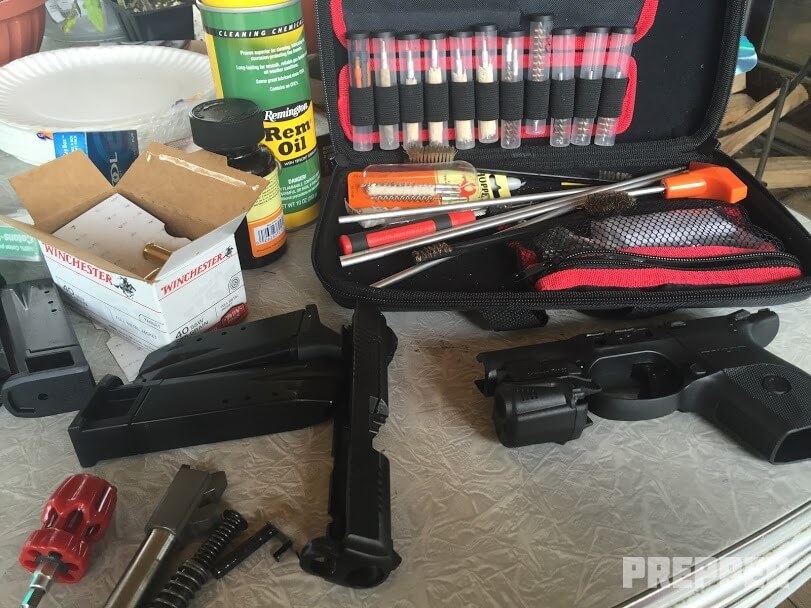
Top 4 Reasons Preppers Should Become Gunsmiths
Save Money
If you can build and repair your own guns, you will potentially be saving a significant amount of money that can be put to better use stockpiling essential preps.
Self Reliance
It is difficult enough to find a quality and affordable gunsmith right now. The odds of being able to safely get to and from a gunsmith to fix your rifle during a long-term disaster fall squarely between slim and none.
OPSEC
OPSEC is yet another substantial reason to learn how to repair your own firearms. There is simply no logical reason to let anyone outside of your family or mutual assistance group know what is in your arsenal, if it can be avoided.
Extra Income
In most states, you could run a side business repairing guns right from your own garage or backyard workshop. You can hone your gunsmithing skills while making extra money to spend on long-term storage food, spare gun parts, or to save up for a down payment on a rural survival homesteading retreat.
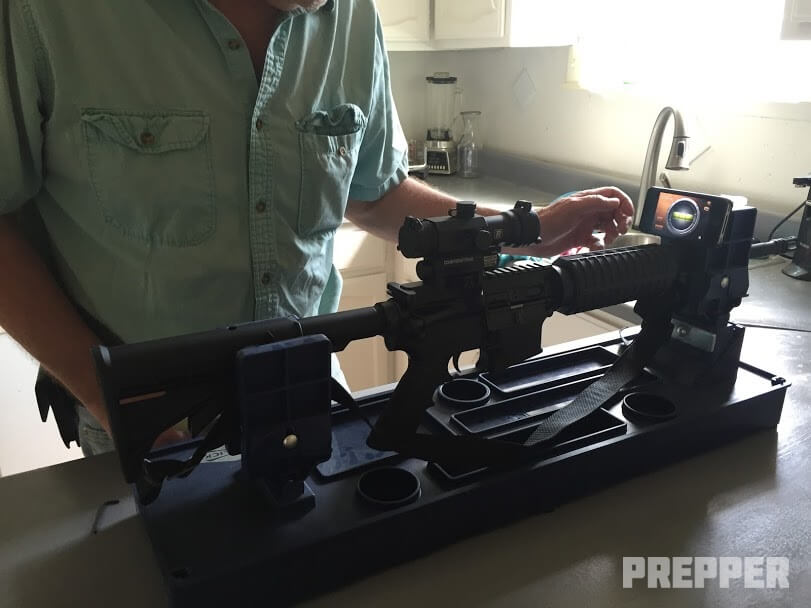
What Exactly Is A Gunsmith?
When you train to become a gunsmith, you are not only learning how to repair and build a gun, but also how to customize it to meet a customer’s (or your own) specifications. Whether you train online or sit in a classroom, a potential gunsmith will be taught how to refinish metal into a colored finish (think OPSEC here), how to do engraving work, and build a stock to meet the unique physical requirements and physique of the shooter.
How to Become a Gunsmith
As noted above, you can train to become a gunsmith both online and by taking a class. Typically, online gunsmithing classes include intricately detailed videos to teach students all the steps of a particular gun repair, gun building, or customization task.
When engaging in online gunsmith training, the student may also often be required to create and upload videos of themselves mastering a particular skill or lesson to be granted a diploma or certificate of completion for the course.
If you live in a state that does require a more advanced level of education to become a professional gunsmith, it may be necessary to take associate degree level classes specific to gunsmithing, as well as pass at least one firearms specific ethics and one law course to graduate from the program.
Part of many gunsmith training programs, no matter what style of learning program the students is enrolled in, requires successful test firing of guns that have been worked upon during the class.
Common Gunsmith Training Courses And Requirements
Background Check
A person training to work as a professional gunsmith must submit to the same type of background check that is run when purchasing a gun or applying for a concealed carry permit, in most states. Some Professional gunsmiths must submit to a background check before officially opening up a business in most, if not all, states.
Federal Firearms License
A professional gunsmith also may be required to apply for Federal Firearms License, or FFL, from the Bureau of Alcohol, Tobacco, Firearms, and Explosives (ATF). This process generally takes at least weeks, if not months. A separate course and fee (and not a nominal one here, folks) is currently required when applying for a FFL.
Because not all gun repairs, builds, or custom projects can be completed during a single business day, a professional gunsmith is mandated to maintain a “bound book.” Gunsmiths often need to keep a customer’s gun overnight or longer. When such an instance occurs, a record must be generated to detail the information about the gun and the name of the owner in the “bound book” kept by the business for just this purpose. This gun log, and other FFL required record keeping, must be kept current and used to document any firearm that the professional gunsmith touches. Failure to do so can result in fines, a legal business shut down order, or possibly even criminal charges after an ATF agent swings by for a surprise inspection.
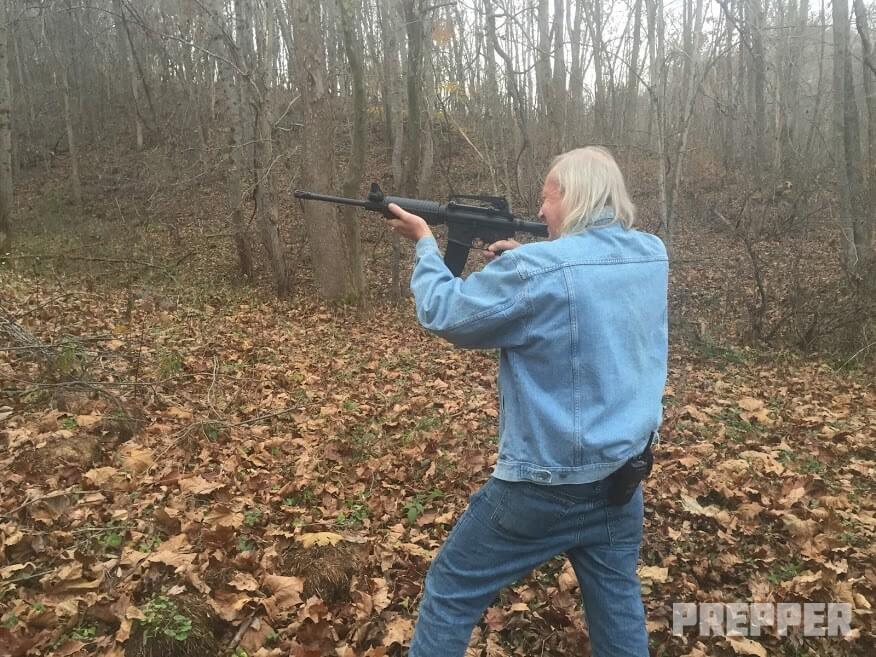
Firearms Conversion and the Law
This type of gunsmithing class will focus upon both federal and state laws related to any type of firearms modifications.
Firearms Handling
Gunsmith classes of this type will teach and often require the demonstration of, safe firearms handling procedures relating to both broken and completed firearms.
Firearms Repair
These type of classes will almost comprise the bulk of the instruction in any gunsmith training course.
Metal Finishing
This class often focuses on both repairs and customization of firearms.
Complex Machine Tools
This class relates to more advanced machinery used in gunsmithing and often is designed to equipment that typically only a professional blacksmith would use on a regular basis.
Ammunition Reloading
Some gunsmith classes also feature an ammo reloading class. Gunsmithing classes may be offered at a basic levels and then have options to learn more advanced skills or specific type of skill, like ammunition reloading.
Welding
Tig welding is generally the primary focus of this common gunsmithing course.
How Long Does It Take To Become A Gunsmith?
How long it takes to become a gunsmith depends largely on your own schedule, if taking the class online. If taking an adult education course that offers a certification of completion or diploma, the duration of the class will be detailed during the registration process and largely depends on how long each class session is and how many times a week or month, that the class meets.
Typically, it can take about three months to complete a comprehensive gunsmith course, taken either online or off, like the program offered by the NRA, will take about three months to finish.
A professional level associate’s degree program may take up to two years to complete if campus courses on a typical semester schedule, are mandatory. Some associate degree programs permit some of the coursework to be taken through the college’s online portal or offer summer session courses to allow a student to complete a program of study more quickly.
Conclusion
Becoming a gunsmith is a great way for any prepper to significantly increase their self-reliance, during good times and bad. Check your state for specific requirements. With a modest amount of time and money invested, you can start saving–and potentially earning–extra money along with a valuable new survival skill to add to your prepping toolkit.

